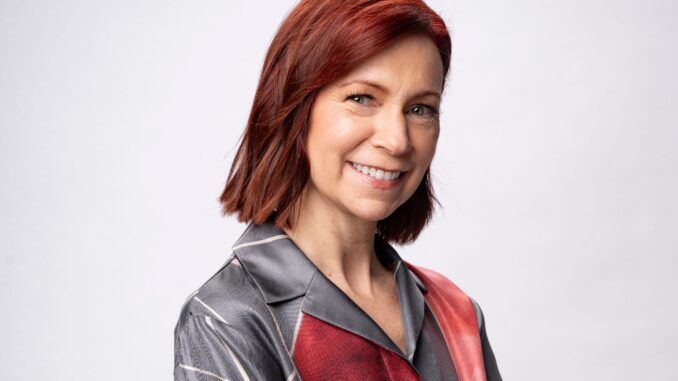
The Art of the Antithetical: On Michael Emerson, Carrie Preston, and the Complicated Joy of Playing Foes
Michael Emerson, a master of the unsettling glint and chillingly calm demeanor, has built a career on playing the calculating villain. Carrie Preston, a force of effervescent charm and quirky brilliance, often embodies the endearingly eccentric protagonist. So, when these two, famously married in real life, found themselves on opposite sides of the courtroom in the CBS show "Elsbeth," the stage was set for a deliciously complex dynamic, both on and off-screen. Emerson’s recent confession that it was “weird and complicated” being Preston’s adversary highlights the unique challenges and ultimately rewarding experience of turning marital harmony into adversarial artistry.
The initial weirdness likely stemmed from the intimate knowledge these two actors possess of each other. They know each other's quirks, their vulnerabilities, their strengths, and weaknesses. This deep understanding, normally an asset for portraying love and intimacy, could easily become a liability when tasked with portraying animosity. How do you convincingly plot against someone whose well-being is so deeply intertwined with your own? How do you summon the necessary venom when your instinct is to nurture and support? The very act of adopting a persona intended to undermine or defeat your partner, even in jest, requires a conscious effort to override ingrained affection and respect.
The complications arose from the need to balance professional obligation with personal boundaries. Acting, at its core, is a collaborative art form, requiring trust and vulnerability between performers. As adversaries, Emerson and Preston needed to push each other, challenge each other, and perhaps even provoke each other to deliver compelling performances. However, they also needed to ensure that the professional friction didn't bleed into their personal lives. This tightrope walk demanded careful communication, clear delineation between character and actor, and a shared understanding that any on-screen antagonism was purely performative. The success of their on-screen dynamic suggests a masterful navigation of this delicate balance, a testament to their individual talent and the strength of their relationship.
But beyond the initial awkwardness and inherent complications, lies the potential for profound creative fulfillment. Playing an adversary, especially against someone you know so well, offers a unique opportunity to explore the nuances of human interaction. It allows actors to delve into the darker corners of human nature, to examine the motivations behind antagonism, and to understand the complexities of conflict. In the case of Emerson and Preston, their intimate knowledge likely informed their performances in subtle but significant ways. Perhaps Emerson understood exactly which buttons to push to elicit the strongest reactions from Preston's Elsbeth, drawing upon his intimate knowledge of her character's anxieties or vulnerabilities. Similarly, Preston might have subtly incorporated her own understanding of Emerson's performative tics to craft a more believable and nuanced counter-strategy.
Furthermore, the act of playing adversaries can be profoundly liberating. It allows actors to inhabit roles that are vastly different from their own personalities, to explore emotions and behaviors that they might otherwise suppress. In a sense, it's a form of controlled rebellion, a chance to unleash the repressed shadows within a safe and contained environment. For Emerson, known for his restrained and calculated villainy, playing against Preston's often unpredictable and intuitive Elsbeth could have been a particularly stimulating challenge, forcing him to adapt and improvise in ways he might not have anticipated. For Preston, confronting the manipulative intellect of Emerson's character could have provided an opportunity to explore the vulnerability and resilience that underlies Elsbeth's seemingly unwavering optimism.
In conclusion, Michael Emerson's admission that playing adversary to Carrie Preston on "Elsbeth" was "weird and complicated" speaks to the inherent challenges of blurring the lines between professional and personal life. However, it also hints at the deeper rewards that can be reaped from such a unique collaboration. By navigating the complexities of their on-screen dynamic with grace, skill, and mutual respect, Emerson and Preston transformed the initial awkwardness into a source of creative inspiration, demonstrating the transformative power of acting and the enduring strength of their partnership, both on and off the screen. The art of the antithetical, when executed with such dedication and understanding, becomes a testament to the enduring magic of performance and the unique bond between two extraordinary artists.
